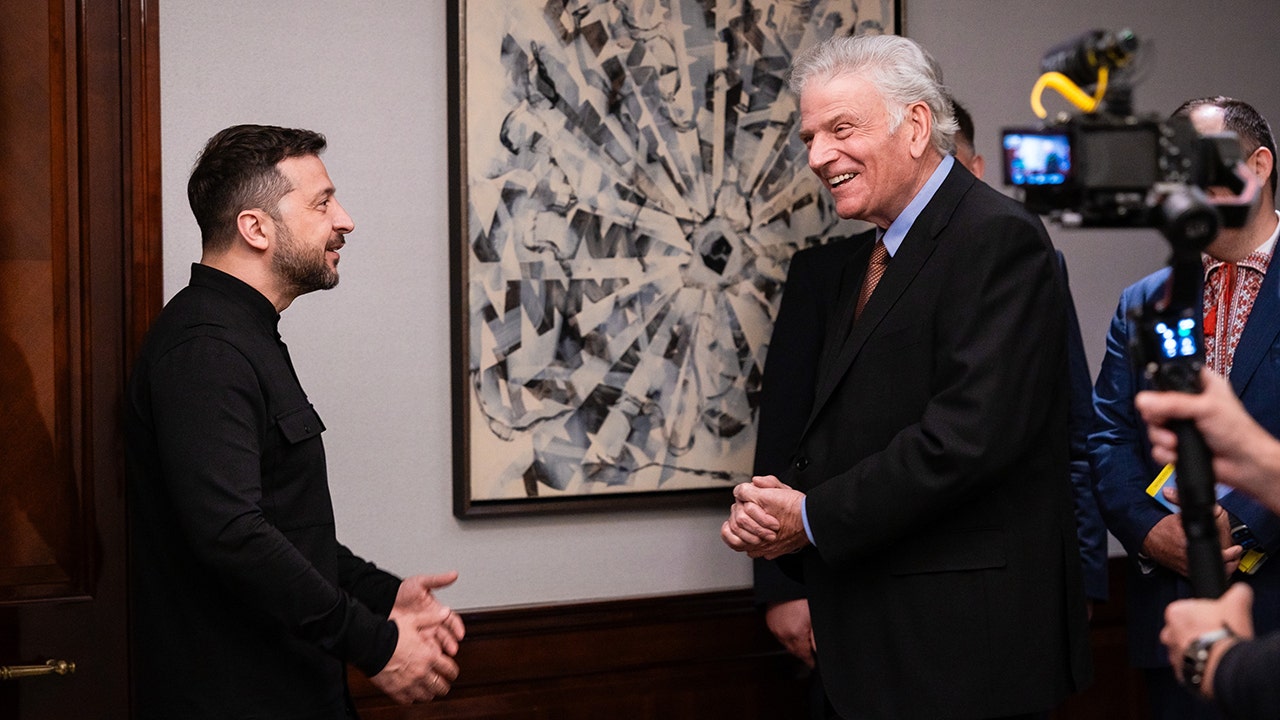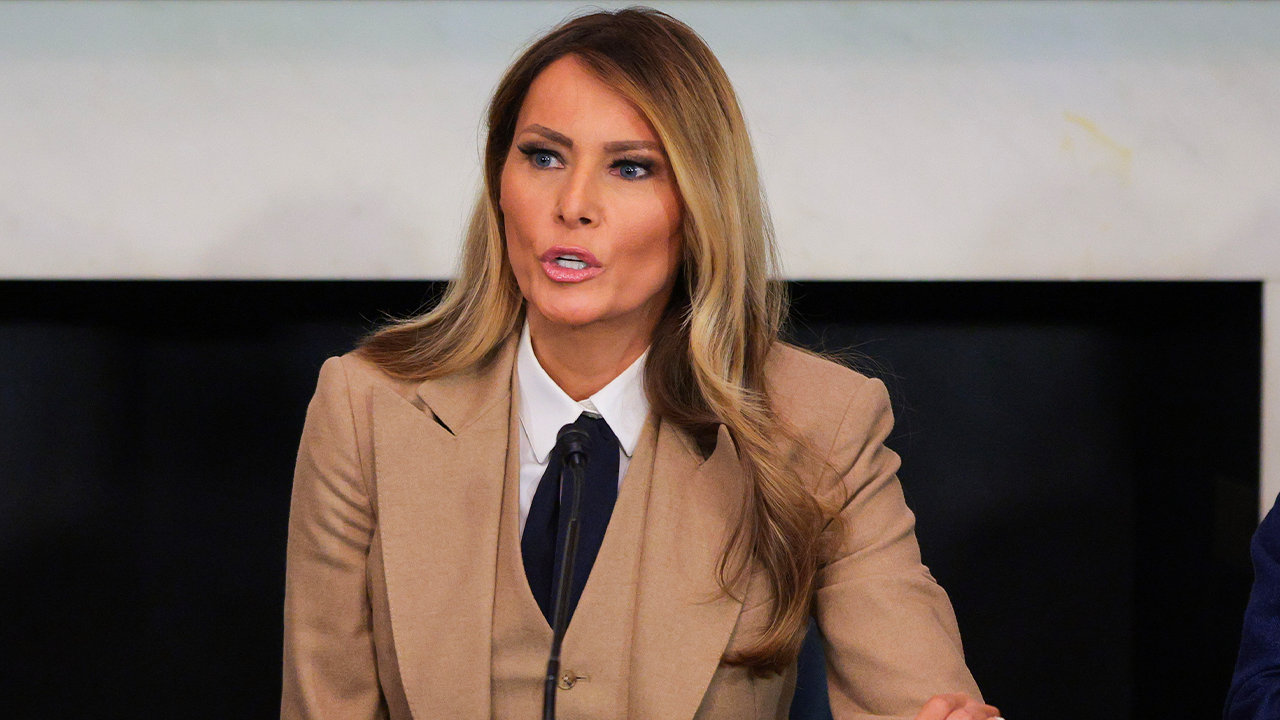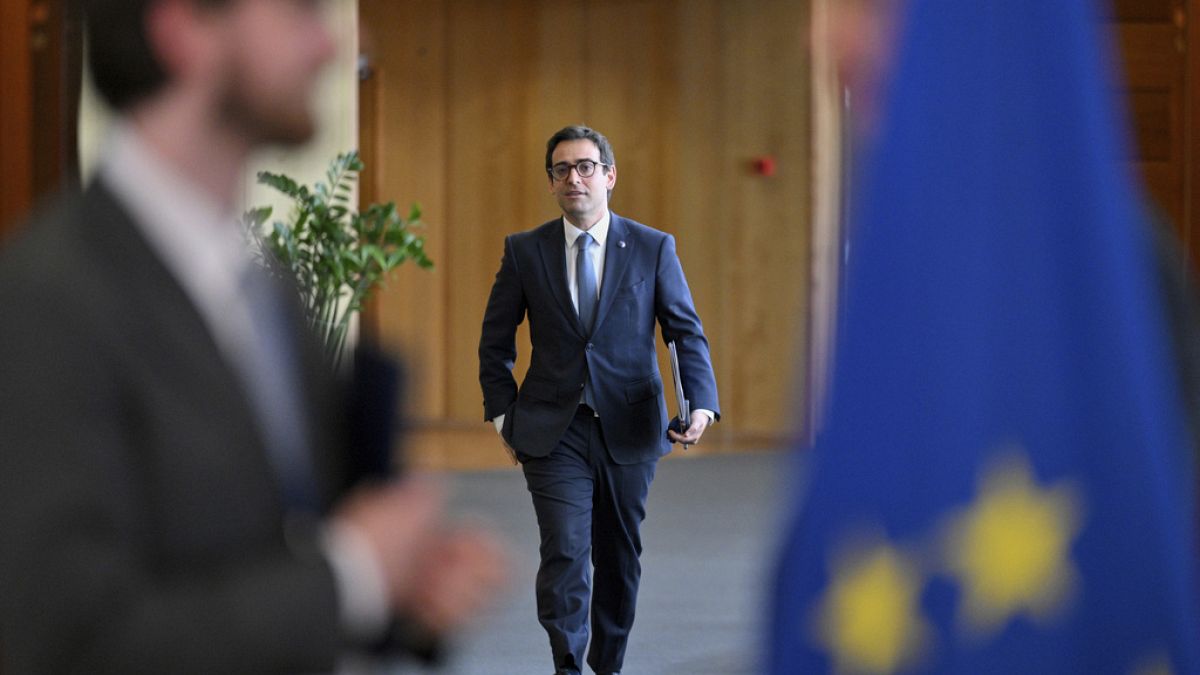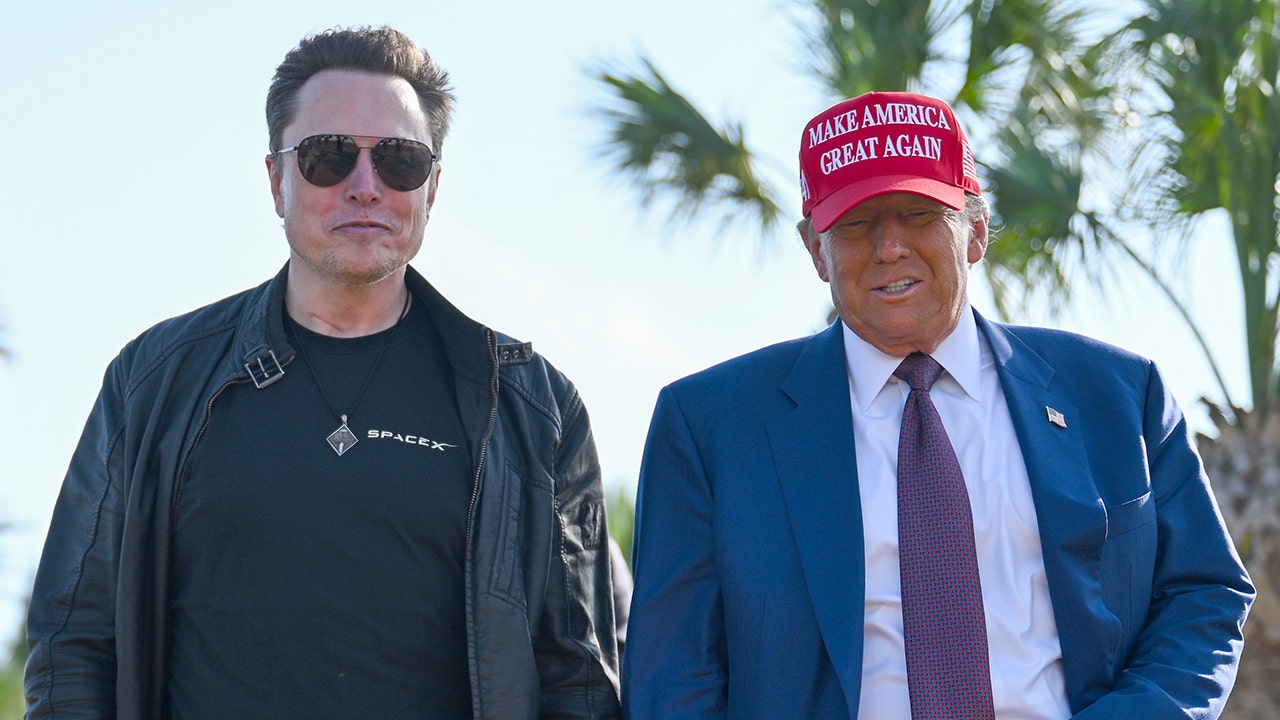World
France, Germany join forces against migration from Tunisia in wake of latest Mediterranean tragedy

TUNIS, Tunisia (AP) — Ministers from Germany and France tasked with regulating migration are joining forces to try to curb deaths on dangerous routes across the Mediterranean Sea, traveling Sunday for talks with the president and their counterpart in Tunisia, a major North African stepping stone for migrants trying to reach Europe at risk of their lives.
The two-day trip by the German and French interior ministers, Nancy Faeser and Gérald Darmanin, follows what is feared to be the deadliest migrant shipwreck in years in the Mediterranean — the capsizing last week of a fishing vessel packed with men, women and children trying to reach Italy from Libya, Tunisia’s neighbor.
More than 500 migrants are presumed to have drowned in the sinking Wednesday off the southern coast of Greece that renewed criticism of Europe’s yearslong failure to prevent migration tragedies.
The U.N. migration agency said it could be the second-deadliest migrant shipwreck recorded — after the April 2015 capsizing of another vessel on the Libya-Italy route that killed an estimated 1,100 people.
A statement from the German minister’s office about her trip with Darmanin said: “We want to create legal migration routes in order to remove the basis for the inhumane business of smugglers. We want the human rights of refugees to be protected and the terrible deaths on the Mediterranean to stop.”
With migrants, mainly from sub-Saharan Africa, undertaking perilous sea crossings from Tunisia in unprecedented numbers, European authorities are seeking reinforced action from the government of Tunisia’s increasingly autocratic president, Kais Saied.
In the first three months of this year, Tunisian authorities intercepted 13,000 people on boats off Tunisia’s eastern port city of Sfax, a main route to Europe for sub-Saharan Africans, who don’t need visas to travel to Tunisia.
As well as working to reduce migrant flows from Tunisia, European authorities are also offering aid to stabilize the North African country, which is in the midst of its deepest economic crisis in a generation. European leaders visiting Tunisia earlier this month held out the promise of more than 1 billion euros in financial aid — including 100 million euros earmarked this year for Tunisian border management and search-and-rescue and anti-smuggling operations.
The German minister’s statement said discussions would focus on “important current migration and security issues,” including promoting legal migration channels, reducing irregular migration and people smuggling, strengthening sea rescue operations and promoting the voluntary return of migrants not entitled to stay in the European Union.
Darmanin, the French minister, did not detail his objectives for the trip to Tunisia in advance. But his ministry confirmed planned meetings on Monday for Darmanin and Faeser with their Tunisian counterpart and with Saied. As well as migration issues and hoped-for strengthened efforts against people smugglers, the French minister also wants to discuss security issues following an attack on a Tunisian island during an annual Jewish pilgrimage in May.
In the attack on Djerba, a Tunisian naval guard shot and killed a colleague and two civilians — one of them French — as he tried to reach the 2,500-year-old Ghriba temple, one of Africa’s oldest synagogues. Security guards killed the attacker. Ten people were injured.
___
John Leicester in Le Pecq, France, and Kirsten Grieshaber in Berlin contributed.
___
Follow AP’s coverage of migration issues at https://apnews.com/hub/migration

World
Jenna Ortega Says ‘I Was an Unhappy Person’ After ‘Wednesday’ Fame and ‘There’s Something Very Patronizing’ About Being ‘Dressed in the Schoolgirl Costume’

Jenna Ortega said in a new interview with Harper’s Bazaar that she was “an unhappy person” in the aftermath of Netflix’s “Wednesday” becoming a global sensation and blowing up her acting career to newfound heights. The show’s first season is the streamer’s biggest English-language series of all time with 252.1 million views. And it’s not even close, as “Stranger Things 4” is in a distant second place with 140 million views.
“To be quite frank, after the show and trying to figure everything out, I was an unhappy person,” Ortega said. “After the pressure, the attention — as somebody who’s quite introverted, that was so intense and so scary.”
Ortega became an overnight sensation despite acting since she was a child, and such popularity put a target on her back on social media as her every move and all of her next acting choices were dissected and picked apart. The actor said she felt “incredibly misunderstood” when she reached the height of fame.
“I feel like being a bully is very popular right now,” Ortega said. “Having been on the wrong side of the rumor mill was incredibly eye-opening.”
Ortega told the publication that the overwhelming success of “Wednesday” is a double-edged sword. There are the pros, like being able to play the cello and having new interests: “I definitely feel like I have a bit more Gothic taste than I did when I was a teenager. I’ve always been into dark things or been fascinated by them, but I was a Disney kid, and the whole thing is being bubbly and kind and overly sweet.”
But there are also some cons: “I’m doing a show I’m going to be doing for years where I play a schoolgirl. But I’m also a young woman.”
Ortega said she is aware that playing the character of Wednesday will limit what the industry thinks she can or can’t do as an actor, which is why she quickly signed on to star in a handful of elcectic movies after the show’s first season wrapped (A24’s “Death of a Unicorn,” “Hurry Up Tomorrow” with the Weeknd, Taika Waititi’s “Klara and the Sun,” “The Gallerist” with Natalie Portman). As a child star who is now trying to be an adult star, Ortega said “you just don’t feel like you’re being taken seriously.”
“You know, it’s like how you’re dressed in the schoolgirl costume,” she added. “There’s just something about it that’s very patronizing. Also, when you’re short, people are already physically looking down on you… girls, if they don’t stay as this perfect image of how they were first introduced to you, then it’s ‘Ah, something’s wrong. She’s changed. She sold her soul.’ But you’re watching these women at the most pivotal times in their lives; they’re experimenting because that’s what you do.”
Ortega said she is “very grateful” for the global fandom she has acquired because of “Wednesday,” which is why she’s trying her best to navigate a career that tailors to both her fans and her own tastes.
“I want to be able to give back to them. But I also want to do things that are creatively fulfilling to me,” she said. “So it’s finding that balance of doing movies that they might be interested in and then doing movies that I’m interested in. [I want roles that are] older and bolder and different. And then I want to be able to line up all of my girls and see something different in all of them.”
“Wednesday” Season 2 will release in two parts on Netflix starting Aug. 6 and ending Sept. 3. Read Ortega’s full Harper’s Bazaar cover story here.
World
Franklin Graham meets with Zelenskyy in Berlin, offers prayer as Russia-Ukraine war escalates

Franklin Graham, president of the Billy Graham Evangelistic Association and Samaritan’s Purse, met Wednesday with Ukrainian President Volodymyr Zelenskyy in Berlin.
During their meeting, Graham offered prayers for Zelenskyy, Russian President Vladimir Putin and President Donald Trump, seeking divine guidance for a path to peace in the ongoing Russia-Ukraine war.
“Today I had the privilege to meet with President Zelenskyy and have prayer with him,” Graham shared on social media. “I prayed for President Putin, I prayed for him [Zelenskyy], and I prayed for President Trump — that God would give them wisdom and that God would give them a path forward for peace.”
ZELENSKY SHEDS DETAILS ON MEETING WITH VANCE, RUBIO IN ROME AFTER RUSSIA PEACE TALKS STALL
Ukrainian President Volodymyr Zelenskyy, left, and Franklin Graham share a conversation during a meeting in Berlin. (Billy Graham Evangelistic Association)
The meeting coincided with the European Congress on Evangelism, where Graham addressed over 1,000 Christian leaders from 55 countries.
He emphasized the complexities of the war, stating, “These are very difficult, and I believe only God can solve this.”
Zelenskyy expressed gratitude for the humanitarian aid provided by Samaritan’s Purse, including support for Ukrainian children, displaced individuals and medical institutions.
“We are very grateful for the strong support from the American people, the White House and President Trump,” Zelenskyy said. “Thank you for your prayers and for helping people.”
The meeting took place against a backdrop of intensified Russian military action in Ukraine.
ON THIRD ANNIVERSARY OF UKRAINE INVASION, EUROPEAN LEADERS SHOW SUPPORT, EXPRESS UNEASE

A representative carries the Ukrainian flag during a presentation at the European Congress on Evangelism in Berlin. (Billy Graham Evangelistic Association)
Recent reports indicate escalating Russian air and ground assaults, with increased use of drones by both sides. Germany has announced plans to assist Ukraine in producing long-range missiles, marking a significant deepening of support for Ukraine’s defense industry.
Zelenskyy has proposed a trilateral summit involving Trump and Putin to negotiate an end to the hostilities.
Graham’s visit coincided with the European Congress on Evangelism being held in Berlin for the first time in 25 years.
From Ukraine to the U.K. and Sweden to Spain, over 1,000 pastors and ministry leaders from across Europe have come to the city where Billy Graham once preached to declare that they are “unashamed of the Gospel,” echoing the words of Romans 1:16.

Franklin Graham speaks during the European Congress on Evangelism in Berlin. (Billy Graham Evangelistic Association)
“There hasn’t been a gathering of this kind since the Billy Graham Evangelistic Association’s congress in Amsterdam in 2000,” Graham said. “What a moment for Europe, and what a time to boldly proclaim Christ.”
The congress marks a return to the roots of BGEA’s global evangelistic mission.
In 1966, Billy Graham held the first World Congress on Evangelism in Berlin, declaring the city a platform to reach the world with the message of salvation.
More than 20 speakers from 13 nations are contributing to the 2025 congress, with worship led by Grammy winner Michael W. Smith, Charity Gayle and top Christian artists from across Europe. The event is being translated in 10 languages.
Marc Van de Wouwer, a Belgian evangelist and retired federal investigator, reflected on his experience at the 2000 Amsterdam congress.
“At the time, there were very few evangelists in Belgium,” he said. “That event reignited my passion, and now I’m coming back to help invest in the next generation.”
World
US judge says effort to deport Mahmoud Khalil likely unconstitutional

A United States federal judge has said that an effort by the administration of President Donald Trump to deport pro-Palestine student activist Mahmoud Khalil is likely unconstitutional.
District Judge Michael Farbiarz of New Jersey wrote on Wednesday that the government’s claim that Khalil constituted a threat to US national security and foreign policy was not likely to succeed.
“Would an ordinary person have a sense that he could be removed from the United States because he ‘compromise[d]’ American ‘foreign policy interests’ — that is, because he compromised US relations with other countries — when the Secretary has not determined that his actions impacted US relations with a foreign country?” Farbiarz wrote. “Probably not.”
Farbiarz did not immediately rule on the question of whether Khalil’s First Amendment rights to free speech were violated. He also did not order Khalil’s immediate release, citing unanswered questions about his permanent residency application.
The judge is expected to order further steps in the coming days.
A ruling against the government would be the latest legal setback for the Trump administration’s controversial efforts to crack down on pro-Palestine activism across the US in the name of national security and combating anti-Semitism.
But critics have accused the Trump administration of violating basic constitutional rights in its efforts to do so.
Khalil, a lawful permanent resident of the US, was the first high-profile arrest made in the Trump administration’s push to expel student protesters involved in demonstrations against Israel’s war in Gaza.
A former graduate student, Khalil had served as a spokesperson for the antiwar protests at Columbia University. But on March 8, the 30-year-old was arrested in the hall of his student housing building in New York City, while his wife, Dr Noor Abdalla, filmed the incident.
He was then transferred from a detention centre in New Jersey to one in Jena, Louisiana, while his lawyers struggled to ascertain his location. He remains imprisoned in the Jena facility while the US government seeks his deportation.
In public statements, Khalil has said that his detention is part of an effort to chill dissent over US support for Israel’s war, which has been described as a genocide by human rights groups and United Nations experts.
Civil liberties organisations have also expressed alarm that Khalil’s detention appears premised on his political views, rather than any criminal acts. Khalil has not been charged with any crime.
In Louisiana, Khalil continues to face an immigration court weighing his deportation. But in a separate case before the US federal court in Newark, New Jersey, Khalil’s lawyers are arguing a habeas corpus petition: in other words, a case that argues their client has been unlawfully detained.
US Secretary of State Marco Rubio, acting on behalf of the Trump administration, has cited the Immigration and Nationality Act of 1952 as the legal basis for Khalil’s detention.
That Cold War-era law stipulates that the secretary of state can deport a foreign national if that person is deemed to pose “potentially serious adverse foreign policy consequences”.
But that law has been rarely used and raises concerns about conflicts with the First Amendment of the US Constitution, which guarantees the right to free speech regardless of citizenship.
Judge Farbiarz appeared to echo that concern, warning that the Trump administration’s rationale appeared to meet the standards for “constitutional vagueness”.
That, in turn, means Khalil’s petition is “likely to succeed on the merits of his claim” that the government’s actions were unconstitutional, the judge wrote on Wednesday.
Khalil’s legal team applauded the judge’s order, writing in a statement afterwards, “The district court held what we already knew: Secretary Rubio’s weaponization of immigration law to punish Mahmoud and others like him is likely unconstitutional.”
Khalil is one of several high-profile students whose cases have tested the constitutional bounds of the Trump administration’s actions.
Other international students detained for their involvement in pro-Palestine politics, such as Tufts University student Rumeysa Ozturk and Columbia University student Mohsen Mahdawi, have been released from detention after legal challenges.
But Khalil remains in detention. The government denied a request for Khalil’s temporary release that would have allowed him to witness the birth of his son in April.
It also sought to prevent him from holding his newborn son during visitation sessions at a Louisiana detention centre.
“I am furious at the cruelty and inhumanity of this system that dares to call itself just,” Abdalla, Khalil’s wife, said in a statement.
She noted that Immigration and Customs Enforcement (ICE) had denied the family “this most basic human right” after she flew more than 1,000 miles to visit him in Louisiana with their newborn son.
A judge blocked those efforts by ICE last week, allowing Khalil to hold his son for the first time more than one month after he was born.
-

 News1 week ago
News1 week agoMaps: 3.8-Magnitude Earthquake Strikes Southern California
-

 Culture1 week ago
Culture1 week agoDo You Know the English Novels That Inspired These Movies and TV Shows?
-

 Education1 week ago
Education1 week agoVideo: Columbia University President Is Booed at Commencement Ceremony
-

 Politics1 week ago
Politics1 week agoTrump, alongside first lady, to sign bill criminalizing revenge porn and AI deepfakes
-

 Education1 week ago
Education1 week agoHow Usher Writes a Commencement Speech
-

 World1 week ago
World1 week agoDigitisation fronts new Commission strategy to boost EU single market
-

 Politics1 week ago
Politics1 week agoExpert reveals how companies are rebranding 'toxic' DEI policies to skirt Trump-era bans: 'New wrapper'
-

 World1 week ago
World1 week agoEU reaches initial deal to lift economic sanctions on Syria: Reports


:focal(0x0:3000x2000)/static.texastribune.org/media/files/c00eed6d9f45b6e1ebacbb76d9df1920/0127%20School%20Choice%20Lufkin%20CO%20TT%2020.jpg)












